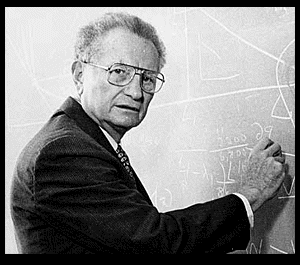A Financial History of the World
Niall Ferguson
(Penguin)

Earlier in life, I had fallen in love with Ferguson and his acerbic style in the superb Empire: The Rise and Demise of the British World Order and the Lessons for Global Power. It was crammed with tid-bits about the raj, like "The English criminals who got shipped off to Australia between 1787 and 1853 did so mostly for petty offenses. Thus Australia literally started out as a nation of shoplifters."
or
-
The Pilgrims thanked God for the fact that 90% of the American Indians had died of disease before they arrived: "The Hand of God," said the Governor of Carolina, has been "eminently seen in thinning the Indians to make room for the English."
or
"Paul Revere didn't shout 'The British are coming!' but 'The regulars are out,' (Americans were still British in 1775)."
In praise of Empire, we wrote, "How in god's name one man can draw together all the loose ends of the 300 year history of the British Empire in 350 or so pages, and make any sense of it at all is beyond me --- but he does it, and he does it well..."
- If you have any affection for history that is fun and cogent and lively, this should be your baby. I'm already on page 229, and with luck, I'll stretch out my reading, three or four pages a night, so I can squeeze at least another few weeks out of it.
The Ascent of Money is almost as good ... a rich reward for those who suffered through Economics II as taught in our first year at college, classes throttled by heavy hand of Paul Samuelson and others in the dismal profession. Ferguson is certainly a hell of a lot more pithy.
For example, he defines plunder as "taxation of the defeated." He reports that the inventor of the game "Monopoly" had intended "to expose the iniquity of a social system in which a small minority of landlords profited from the rents they collected from tenants" (it was originally named "The Landlord's Game").
Ferguson also has a fine time with Milton Friedman, who "co-wrote perhaps the single most important book on US monetary policy of all time, firmly laying the blame for the Great Depression on mistakes by the Federal Reserve." Friedman ended up as a senior advisor for Chile's strongman General Augusto Pinochet, advising him that the country's economic problems were "almost entirely" to be blamed on "the forty-years trend toward collectivism, socialism, and the welfare state."
The paradox, so finely limned by Ferguson, is: "Was it worth it? Was it worth the huge moral gamble that the Chicago and Harvard boys made, of getting into bed with a murderous, torturing military dictator?"
- By radically increasing the opportunity for Americans to own their own homes, the Roosevelt administration pioneered the idea of a property-owning democracy. It proved to be the perfect antidote to red revolution.
Ferguson explores some dandy new economic theories ... for instance, that of the Peruvian theorist Hernando de Soto (we trust he didn't make up that name). De Soto has calculated that the total value of real estate owned by the world's very poor is over nine trillion dollars, "roughly ninety times all the foreign aid paid to developing countries between 1970 and 2000."
The problem: the very poor have no legal title to their property. Thus it cannot be used as collateral for a loan. "Only with a working system of property rights can the value of a house be properly established by the market" to be bought or sold or made the basis of loans. Thus, according to de Soto, poverty is a result of a badly functioning governmental registration system. Without the likes of title deeds, people are literally land poor.
This dovetails with Ferguson's earlier assertion that poverty "is seldom directly attributable to the antics of rapacious financiers."
- It often has more to do with lack of financial institutions, with the absence of banks, not their presence.
"Only when borrowers have access to efficient credit networks can they escape from the clutches of loan sharks."
The biggest surprise in Ascent of Money is the prediction of immanent war. Say who? Ferguson spends many pages telling us about the predictions of eternal world peace that culminated, in 1914, with the publication of a book by Henry Noel Brailsford that said, "it is as certain as anything in politics that the frontiers of our national states are finally drawn. My own belief is that there will be no more wars among the six great powers."
Fade to the present. A major war, says Ferguson, "can arise when economic globalization is very far advanced."
- The longer the world goes without a major conflict, the harder one becomes to imagine (and, perhaps the easier one becomes to start.)